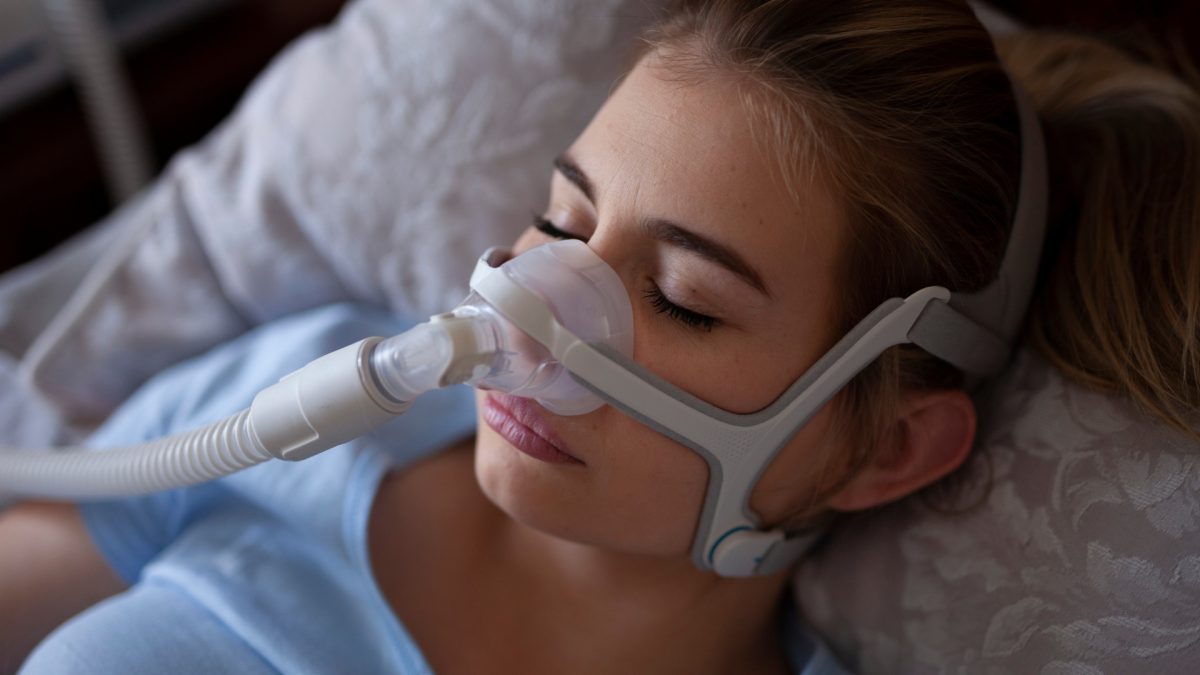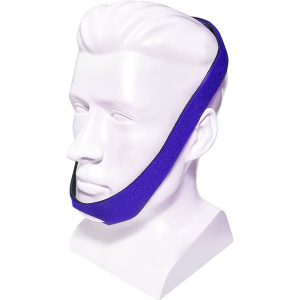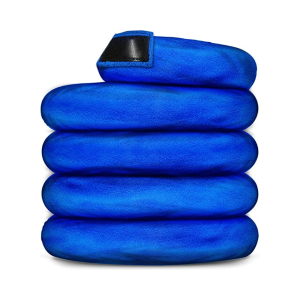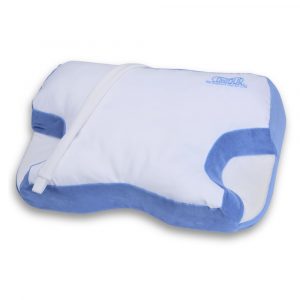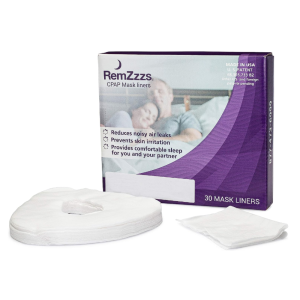Fact Checked
Intus Healthcare’s writers, customer service team, and sleep experts review and ensure this information is accurate.
Last updated on January 29th, 2024 at 10:41 am
Why is my CPAP mask leaking so much?
It is common for mask leaks to happen as you move around throughout the night, shifting your mask seal. However, if this is persistent, it could affect the effectiveness of your therapy and the quality of your sleep. This article will help and support you with solutions for mask leaks.
There is not just one cause for your mask leaking. Different factors can affect the seal of your CPAP mask.
All CPAP masks have a small intentional exhaust vent so that the carbon dioxide you exhale is removed, but unintentional leaks elsewhere on the mask can cause a dry mouth or nose and compromise your therapy.
Here are some causes of CPAP air leaks:
- Poor fit – If your mask is not fitting correctly, mask leaks can happen. If your mask is not tight enough or if it is gaping around your mouth or cheeks, the air can escape. If your headgear is too tight or loose, it will affect the functionality of your mask.
- Old mask – We recommend changing your mask every 6-12 months. It is not recommended to use an old mask, as it will have signs of wear and tear. The components, such as the cushions, do deteriorate over time, which affects the seal of your mask.
- Cushion size is ill-fitting – Your mask cushion may no longer be creating a good seal; this can be due to a number of factors, including weight loss or weight gain, side effects of medication which could cause swelling to the jaw and cheek area, hormonal disturbance such as thyroid diseases, any recent surgery, sinusitis, stress or anxiety or the cushion is simply not the right fit for your face.
- CPAP cleaning – Keeping your mask clean is essential. Dirt and oils can impact the seal of your mask and damage it. If you’re unsure, read our article on how to clean your CPAP equipment for helpful information.
- How you breathe at night – You may have the wrong type of mask. If you breathe through your nose only, then a nasal mask would be the most beneficial. If you snore and/or breathe through your nose and mouth at night, a full face mask is recommended. Unsure? Then a full-face mask is always the best option.
- Sleeping position– If you are a restless sleeper and toss and turn throughout the night, it can knock your mask out of position. For this, you could try a specialised CPAP Pillow and read our guide on CPAP masks for side sleepers to help you decide what mask is best for you.
You can look at the data on your CPAP machine to see if there is any indication of mask leakage. Ideally, you want the seal to be green on your machine and the leakage report to have a leak rate of less than 24 litres per minute.
CPAP Masks
At Intus Healthcare, we take pride in presenting the largest assortment of CPAP masks available in the UK. Our selection includes various types, shapes, and sizes, ensuring that you find the ideal style to suit the way you breathe.
Our comprehensive range spans full-face, nasal cushion, and nasal pillow masks. For added peace of mind, we offer a select number of risk-free masks backed by a 28-day returns policy. Additionally, our exclusive Mask-Fit Insurance covers all other CPAP masks. Choosing Mask-Fit Insurance allows you a 28-day trial period with the flexibility to return it if it doesn’t suit you.
How can I tell my CPAP mask is leaking?
If your CPAP mask is leaking, you will feel air blowing into your eyes. Leaking air makes an irritating hissing sound, which may be heard by you or your bed partner. You may also wake up with dryness around your mouth, eyes and nose.
Many Sleep Apnoea sufferers snore, and this stops when their therapy is correctly used. If you find you have started snoring again, this could be down to your mask leaking.
How do I stop my CPAP mask from leaking?
Air leaks are a problem for many CPAP users, but with simple tips, leaks are easily solved. The effectiveness of your treatment depends on you solving your CPAP mask leaks.
Here’s our advice:
- Ensure you have the correct size mask; our masks have sizing guides. You can find these in the downloads tab on the product page. Print these off to scale and easily find your correct size.
- Our faces change shape when we lie down, so adjusting your mask after you lie down will give you the best fit.
- If your device has a ‘ramp’ setting option, take advantage of it. This feature will slowly increase the pressure of your device, minimising the likelihood of you taking off your mask throughout the night.
- Your CPAP pressure settings also impact the risk of leaks; you may need to speak to your healthcare provider to adjust your settings. Weight loss or gain can impact your CPAP pressure settings. Contact us if you’re unsure what the numbers on your CPAP machine mean.
- Trying a new mask can prevent leaks; there are a few different mask types to choose from, and the one you have may not be the most suitable for you. Switching from a nasal mask to a full-face or visa-versa could be just what you need to do. The Fisher and Paykel Evora full-face or nasal masks are designed with stability wings to allow for as much movement as possible in your mask. You could also try a risk-free mask, which is guaranteed to give you a good fit.
- Being comfortable in your mask is essential. Make sure you are regularly replacing your mask parts as per manufacturers’ recommendations to get the full benefits of your CPAP.
- At Intus Healthcare, we provide mask liners; these are soft, cotton fabric liners that fit between your mask and your skin. The liner creates a comforting barrier, preventing air leaks, skin irritation and red marks.
- A CPAP chin strap can be added to your therapy to help reduce mask leaks. The soft chin strap material holds your chin in a comfortable and suitable position. Encouraging you to breathe through your nose to stop a dry mouth or nasal passage. This is additional headgear to wear on top of your mask and can take some getting used to.
Is there a CPAP mask that doesn’t leak?
All CPAP masks risk leaking throughout the night, but if you wear the correct size, the seal should remain secure and stop air leaks. If your mask starts leaking when it has never before, this could be due to wear and tear, and you should consider replacing your mask parts.
Summary
Your CPAP mask leaking signifies something is wrong with your equipment, however, there is usually an easy fix.
If you know someone who could have Sleep Apnoea, we suggest they take our free online OSA risk assessment.
If you have any questions or need help with your CPAP mask leaks, contact us to speak with our friendly team.
Helpful articles:
How your sleeping position affects your sleep
How to stop snoring with a CPAP machine
CPAP dry mouth: What causes it & ways to stop it

